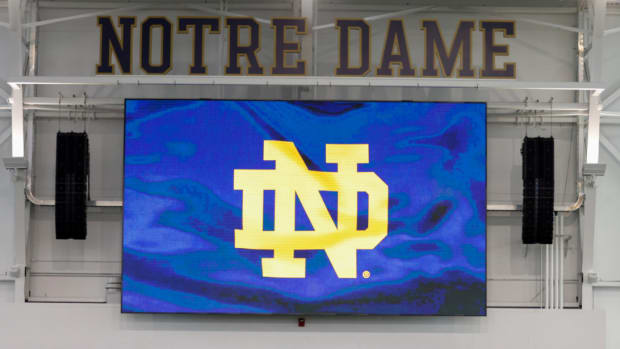The College Football Playoff’s Future Is in the Hands of the Rose Bowl
The Rose Bowl is on the clock.
The CFP executive board of presidents does not plan to guarantee the Rose Bowl game its request for an exclusive Jan. 1 window in future iterations of an expanded playoff, sources say, and they have given the sport’s oldest operating bowl a deadline.
Believed to be the last hurdle to expanding the playoff early, the Rose Bowl and its officials have been given a matter of days to make what could be a monumental decision for the future of college football’s postseason. The Rose Bowl can either agree to expand the playoff as soon as 2024, or delay expansion to ’26.
CFP officials need unanimous agreement from the six CFP bowls to expand the playoff to 12 teams before the contract with ESPN ends after the 2025 playoff. The six bowls are the Rose, Sugar, Orange, Fiesta, Peach and Cotton.
Five of the six bowls support amending the current contract and expanding early. The Rose Bowl has delayed its decision while making a request to CFP executives, something it announced publicly through ESPN in a published story last week.
The Rose wishes to keep its traditional date and time (2 p.m. PT on Jan. 1) each year in future iterations of an expanded playoff, starting in 2026 and beyond. In the expanded playoff format approved by presidents on Sept. 2, the six bowls would host the quarterfinals and semifinals in a rotation. When its playoff game does not fall on New Year’s Day, the Rose wants to hold a non-CFP game, pitting teams from the Pac-12 and Big Ten, in an exclusive window at its traditional date and time.
In a gathering this week, the CFP Board of Managers, an 11-member group of FBS presidents, discussed the issue and, for now, agreed not to carve out an exclusive window for a game dubbed the “Granddaddy of Them All.”
It is a somewhat expected move given the circumstances. Few if any guarantees can be made for the playoff beyond 2025 because no contract exists. No details have remotely been finalized and few have even been explored, most notably a schedule and media rights deal.
The situation with the Rose Bowl, festering now for months, comes to a head more than two months after presidents unanimously approved a 12-team playoff expansion to begin no later than 2026, the first year of what would be a new CFP contract with the six bowls and a broadcasting partner or partners. The 10 FBS commissioners, as well as Notre Dame athletic director Jack Swarbrick, have spent the last several weeks focusing not on 2026 and beyond, but on expanding in 2024 or ’25.
With each meeting, commissioners have resolved a plethora of issues, most notably the scheduling of eight additional playoff games, the revenue distribution model and the logistics of hosting the first round on campus sites.
However, there is one issue that commissioners do not control: the contracts tied to each of the six bowls.
Put simply, an expanded playoff cannot happen before 2026 without the Rose Bowl agreeing. If it chooses against expansion, it would be costing college football in more ways than one. An expanded CFP would generate a combined $450 million in additional revenue in 2024 and ’25 as well as a combined 16 extra playoff spots. The bowl game might also cost itself a spot in a new iteration of the playoff in 2026 and beyond.
“Everything else can be resolved or has been resolved,” says one high-placed source.
A spokesperson for the Rose Bowl declined comment when reached Friday.
Labeled stubborn by some and traditionalists by others, the Rose Bowl’s position has long been expected, previously described by some as “the biggest hangup” and the “big issue” in expanding the playoff before the current CFP contract expires after the 2025 season.
In fact, in July 2021, top-level conference executives anonymously expressed their frustration to Sports Illustrated over the game, which has been historically protected by longtime relationships with the Pac-12 and Big Ten.
If it does not agree, the Rose would cost its own partner. No Power 5 league needs playoff expansion more than the Pac-12. The Pac-12 and Big 12 have combined to qualify six teams for the eight playoffs—the same amount as the Big Ten. The SEC has qualified 10 and the ACC eight.
At SEC media days last July, when asked about the potential Rose Bowl issue, SEC commissioner Greg Sankey quickly quipped, “We can stay at four (teams),” a phrase he’s uttered dozens of times over the last year.
One high-placed source told SI last summer that the general sentiment among CFP officials is “enough is enough” with the Rose Bowl and predicted “a lot of drama” during the upcoming negotiations. “But at the end of the day,” the official said, “are those two conferences going to walk away from the playoff to protect the Rose Bowl?”
More than 15 months later, CFP expansion is at the mercy of a 106-year-old game based in Pasadena, Calif., that is wedded to a parade. The Rose has been played every year since 1916, a more than 10-decade run that, through the years, has afforded it the accommodations of college football’s most elite event.
The game is tethered to the Rose Parade, and kickoff each year is purposely timed—2 p.m. local time in Pasadena—to have the sun set, in the fourth quarter, on the San Gabriel Mountains in a scene that many believe is the most picturesque in the sport.

The unique backdrop helps make the Rose Bowl one of the sports most iconic games, but its spot in the playoff and in its exclusive New Year’s Day window complicates things.
Kirby Lee/USA TODAY Sports
Times, however, are changing, top officials say.
Under proposed dates for the 2024 and ’25 expanded playoff, the six participating bowls would rotate hosting quarterfinals on New Year’s Day and semifinals scheduled for later in January. The Rose has no issue with the schedule in ’24 and ’25 as it is already assigned to be a quarterfinal and would retain its traditional kickoff on New Year’s Day.
However, in a new iteration of the playoff, officials want to hold a traditional Rose Bowl in years in which it hosts a semifinal or, presumably, a quarterfinal that is not played on New Year’s Day. In a 12-team playoff, this might be a game pitting the fourth-place team in the Big Ten against the third-place team in the Pac-12. The Rose wishes to not only play the game at its traditional time but also have an exclusive window—roughly from 2 to 5 p.m. PT—in which playoff games are not played.
That window is a lucrative stretch of time on one of the busiest days for college football. In further complicating matters, the playoff rounds may shift dates starting in 2026 and beyond. There is deep discussion about moving the regular season up a week and shifting the calendar in a way where the semifinals are played on New Year’s Day.
Some believe that the Rose Bowl’s position is connected to money. The game owns a lucrative contract with both the Pac-12 and Big Ten that, while integrated into the CFP, is separate. A separate non-CFP Rose Bowl would theoretically produce revenue that the game and two leagues would keep.
The Rose Bowl’s issue is yet another roadblock in negotiations to expand the CFP that are on their 18th month. In June 2021, a subcommittee of commissioners proposed the 12-team model that presidents adopted on Sept. 2. Presidents intervened after commissioners failed to agree on a format, a process filled with drama, pettiness and animosity over both conference realignment and differing ideals.
More College Football Coverage:




